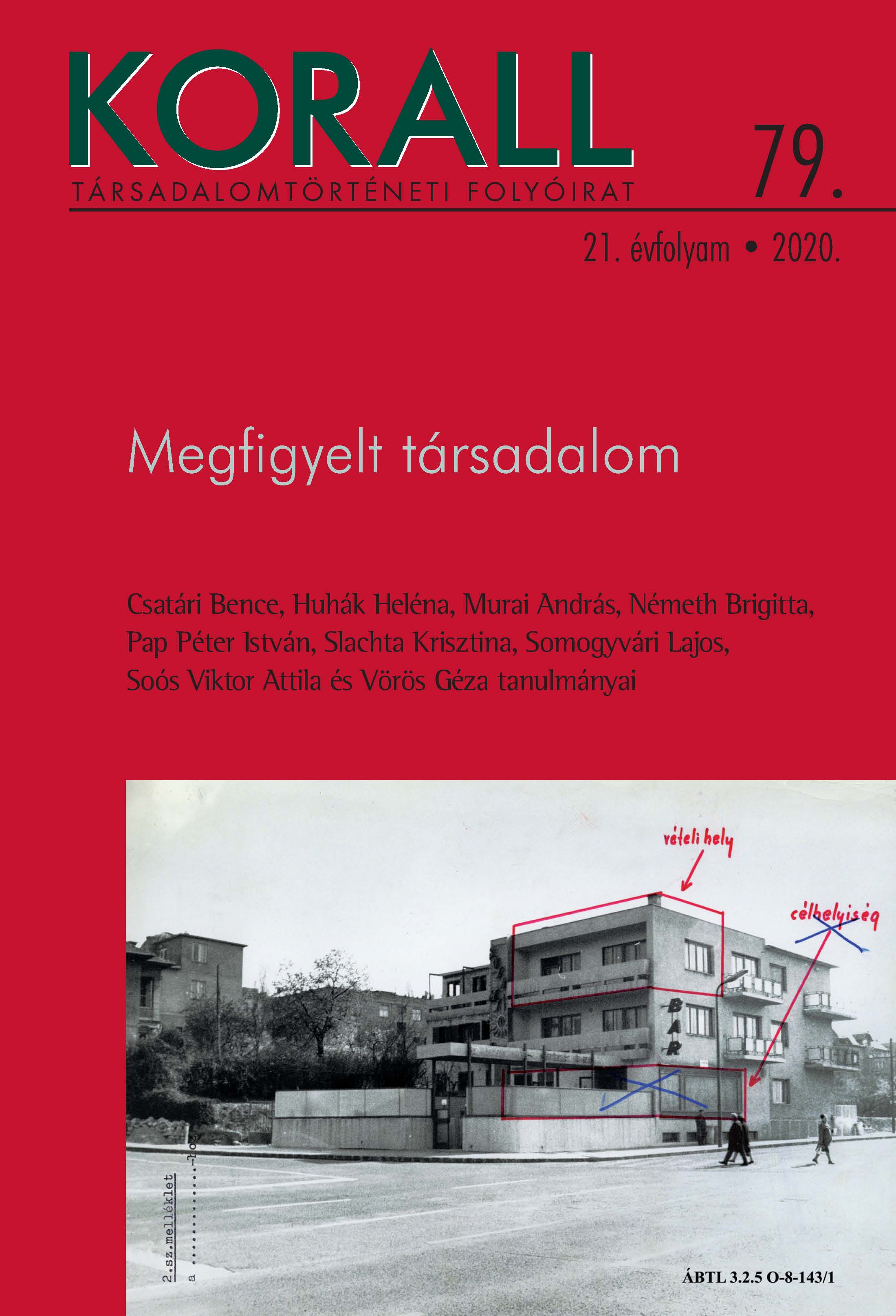„A rendszer rajtuk tartotta óvó szemeit” Megfigyelések az egykori Gulag-rabok körében
“The System Had their Eye on Us”: Surveillance among Former Gulag Prisoners
Author(s): András Murai, Brigitta NémethSubject(s): History, Political history, Social history, WW II and following years (1940 - 1949), Post-War period (1950 - 1989)
Published by: KORALL Társadalomtörténeti Egyesület
Keywords: history;hungary;stalinism;gulags;
Summary/Abstract: The study investigates how surveillance affected the lives of former Gulag prisoners. In nearly thirty oral history interviews, children of former Gulag prisoners all noted the parent’s surveillance and some related how their parents’ fear of informers affected their childhood. Individuals returning from Soviet prison camps in 1953 and 1955 were treated as political prisoners and they were monitored in the Kádár Era for a long time. Both their employers and their building’s caretaker were approached to provide information about them, their neighbours reported about them, and some of them were approached to cooperate with state security at their workplace. Due to their fear of surveillance they chose not to keep in touch with each other or met only in secret. This was revealed by members of the second generation, the children of the Gulag prisoners during their interviews. The story of János Rózsás is also part of this study of former Gulag prisoners and surveillance. Rózsás was the first former prisoner to publish his tragic life story, Keserű ifjúság (Bitter Youth) but in the early 2010s he, too, was found to have worked as an informant for a couple of years in the mid-1970s. Using survivor accounts, own interviews with the second generation, and archival sources, the present study describes how surveillance was conducted among former prisoners returning from the Soviet Union and what it meant for them in their everyday lives.
Journal: Korall - Társadalomtörténeti folyóirat
- Issue Year: 2020
- Issue No: 79
- Page Range: 112-127
- Page Count: 16
- Language: Hungarian

